Cell-free membrane protein expression system enables functional characterization of receptor-like protein kinase FERONIA ($)
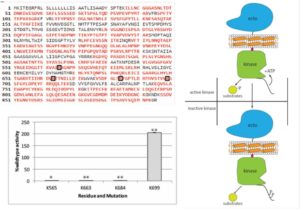 Membrane proteins are some of the most interesting cellular proteins, serving as sensors and transducers of diverse signals, yet they also are the most challenging to investigate because they require lipid interactions for proper structure and function. Recently, cell-free expression systems for membrane proteins have been developed that incorporate lipid nanodiscs consisting of membrane scaffold proteins (MSPs, derived from apolipoproteins) that wrap around a patch of phospholipid bilayer. FERONIA is a plant receptor-like kinase and part of a very large but not well characterized family of membrane proteins. By co-expressing FERONIA in a cell-free expression system with MSP and lipids, Minkoff et al. were able to characterize it functionally in vitro, including assaying the kinase activity of various point mutations for comparison to predictions from molecular genetic studies. This work also demonstrates the applicability of this expression system for the study of plant receptor-like kinases. J. Biol. Chem. 10.1074/jbc.M116.761981
Membrane proteins are some of the most interesting cellular proteins, serving as sensors and transducers of diverse signals, yet they also are the most challenging to investigate because they require lipid interactions for proper structure and function. Recently, cell-free expression systems for membrane proteins have been developed that incorporate lipid nanodiscs consisting of membrane scaffold proteins (MSPs, derived from apolipoproteins) that wrap around a patch of phospholipid bilayer. FERONIA is a plant receptor-like kinase and part of a very large but not well characterized family of membrane proteins. By co-expressing FERONIA in a cell-free expression system with MSP and lipids, Minkoff et al. were able to characterize it functionally in vitro, including assaying the kinase activity of various point mutations for comparison to predictions from molecular genetic studies. This work also demonstrates the applicability of this expression system for the study of plant receptor-like kinases. J. Biol. Chem. 10.1074/jbc.M116.761981


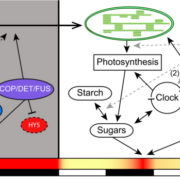
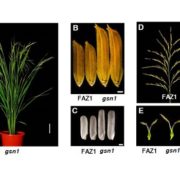

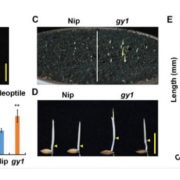
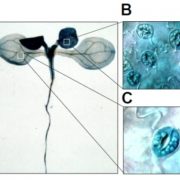
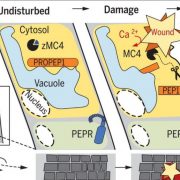


Leave a Reply
Want to join the discussion?Feel free to contribute!